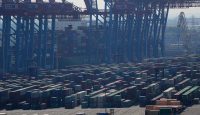
Rethink the WTO’s Role in a Digital, Divided World
The World Trade Organization (WTO) faces arguably the most acute challenge in its 24-year history. Since the election of Donald Trump in 2016, a US administration hostile to multilateralism and tempted by protectionism has worked to undermine the WTO by leaving the body on the brink of being unable to perform one of its central roles: adjudicating the rules of global trade.
If the immediate crisis weren’t enough, structural shifts in markets have raised questions about the long-term suitability of the WTO as a rules-based order for international commerce. What, given certain constraints inherent to the WTO system, are the options for reform?… Seguir leyendo »




